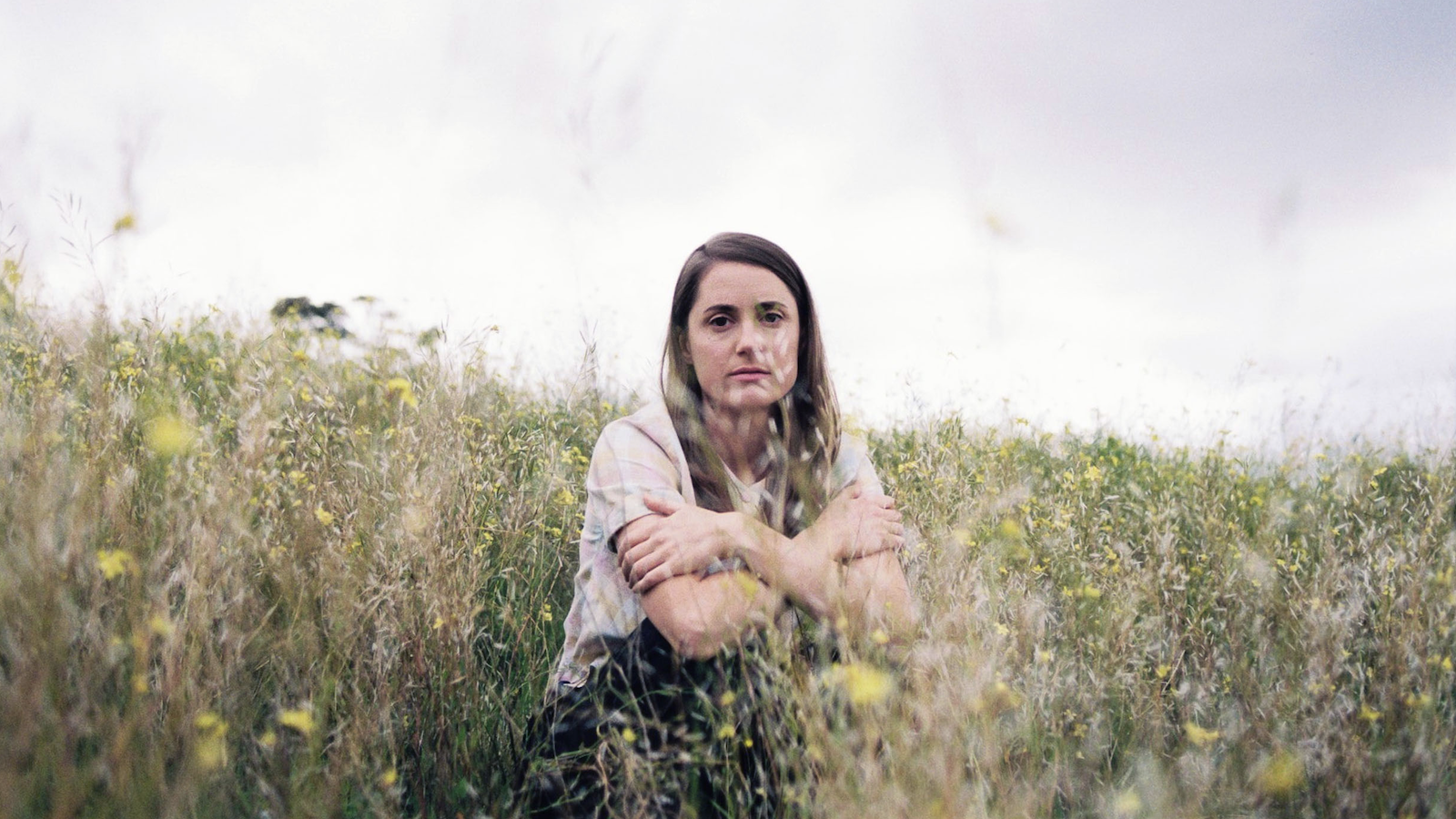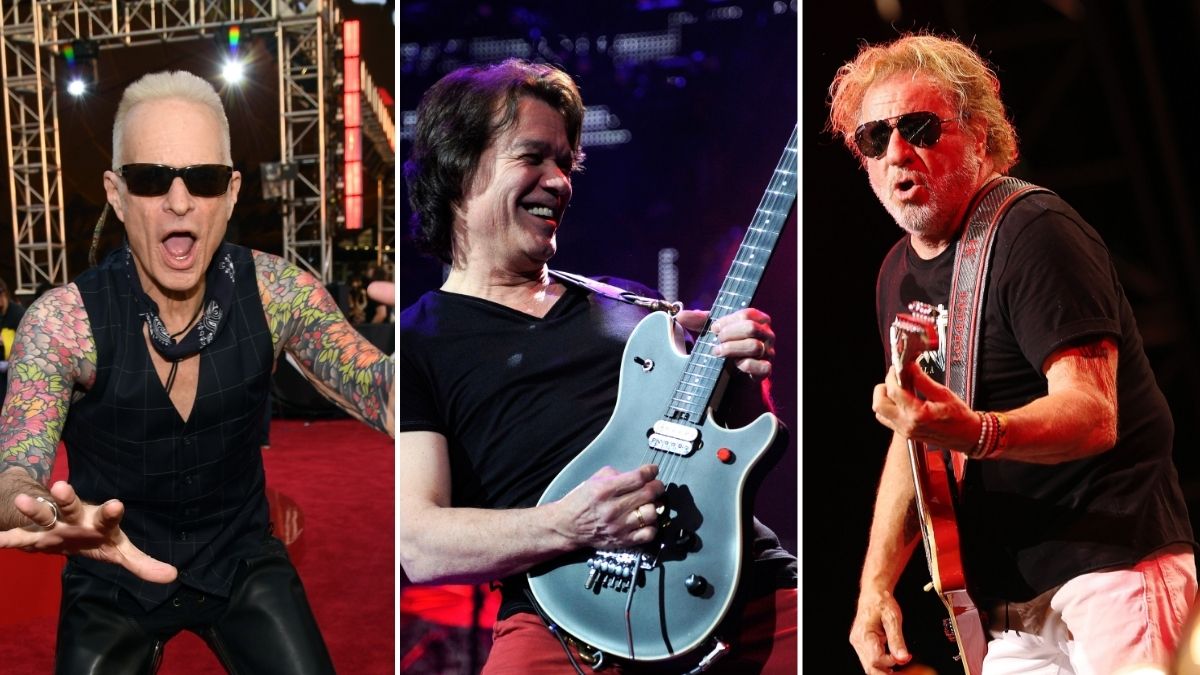Jess Locke: “The world is insane at the moment – I feel like I couldn’t help but just absorb everything!”
Five years in the making, the new album from Melbourne’s indie-rock queen is every bit as silvery and special as one could dream.

At face value, Jess Locke’s music may seem rather cozy and quaint. But just as the Melbourne-native strummer is typically mellow and reserved until you get to know her (at which point she erupts into a luminous blur of liveliness and laughter), her art is secretly rich with polychromatic poignancy, shades of light and dark, sugar and acid twisting and twining around soundscapes far more intricate than they imply – you just need to pay a little closer attention to scratch beneath the initial coat of indie-pop tweeness.
Since the 2017 release of her sophomore solo effort Universe, Locke has only dug her heels deeper into the world of louder and more chaotic rock ’n’ roll aesthetics: she joined The Smith Street Band, first in their touring pack as a backup vocalist and tambourinist, and then as a full-time guitarist and co-songwriter on 2020’s Don’t Waste Your Anger LP. She thinned out her own band’s touring schedule, which led to her personal songwriting efforts spinning off in a whirlwind of wacky directions – without bassist Jim Morris and drummer Chris Rawsthorne to ground her ambitions, Locke began to explore creative avenues that weren’t bound by what’s possible to play on a stage.
Which leads us to solo album #3: the gauzy, glittery and overall ginormous Don’t Ask Yourself Why. Pieced together in key slivers of creative intensity across the five years since she dropped Universe, it’s effortlessly Locke’s most adventurous and ambitious body of work. Stylistically, Locke herself puts it best: “it’s rock, it’s pop, it’s folk, it’s ambient, and just a teensy bit goth.”
In effort to unearth some of the secrets behind what makes Don’t Ask Yourself Why so goddamn brilliant, we gave Locke herself a call…
How did you want this album to build upon what you’d established creatively with your first two?
I definitely tried not to put any restrictions on myself when I was writing. It’s also the first record I’ve written in a contained period of time, as opposed to the previous ones which were like a collection of these songs we’d been playing live as a band for years. We weren’t playing as many shows last year, and then obviously no shows this year, so it was very much a ‘written’ record, where we’re now going to have to find ways to recreate it live instead of vice versa.
I guess that process affected how it sounds, too – it’s pretty expansive in terms of layers and sounds, and how we wanted to make the record first and then worry about playing it live later. It’s quite diverse – mainly because I didn’t really plan the songs out before I started writing them. And then as I was writing them, I’d be like, “Oh, this would make a really good buzzy grunge song – let’s go in that direction!” There’s some folky, Neil Young-ish kind of vibes in there. We’ll see what people think, I suppose, but I think it made for a really interesting record with lots of opposing ideas.
Do you think the record feels tighter as a result of how contained the writing process was?
I think it does. I don’t know how much that will come across to the listener, but it definitely makes me think of where I was when I was writing the record – and thematically, it all kind of fits together. In the past, a lot of my songs were more introspective – I think they still are, but there’s definitely more of an outward sort of vibe as well. I mean, the world is insane at the moment – I feel like I couldn’t help but just absorb everything! So it’s very much more outward looking, and there’s a lot more societal commentary. But of course, it’s all still on a very personal level.
All the latest guitar news, interviews, lessons, reviews, deals and more, direct to your inbox!
Were you excited to explore some new areas of your expertise as a guitarist on this record?
Yeah! There’s definitely a bit more of a mix, for sure. I used quite a bit of a nylon-string guitar – a mix of nylon-stringed acoustics and some electric guitar, and I guess that was a bit different to the last record, which was pretty electric guitar-driven. I suppose it’s a bit of a throwback to how I played when I started out – I was a bit more folk-oriented and acoustic guitar-based, and then I went in a more indie-rock direction later on. There’s a couple of piano-based songs as well, which kind of harkens back to my childhood, when I had a few piano lessons and then gave them up because I was never very disciplined. I’m always trying to put my fingers in a million different pots [laughs].
How did his Rob Muinos’ influence as a producer rub off on this album?
The first record I made was very DIY, just kind of recorded in houses and venues and thrown together at the end. And it was a similar process with the last one, Fitzy and I slapping together all the resources we had and being like, “Okay, these are the songs!” So working with Rob was great because it was a very comfortable and kind of homely vibe; he’s just super knowledgeable and professional. He also took things apart a bit more than I usually would have – he challenged us to really improve the songs, rather than just sort of rocking up and being like, “Well, you’ve got the songs, let’s put them down.”
It was a lot more collaborative than it’s been in the past. I’ve always had a tendency to double my vocals, which is just, like, a stylistic thing that I’d gotten used to doing – I think it sounds cool, but it also becomes a bit of a crutch at the same time. So Rob was very passionate about not doing that as a crutch – he’s not totally against it, but he encouraged me to be a lot more confident with my singing.
So his studio is connected to the Clingan Guitar Tone shop – were you able to take advantage of that and get your hands on a bunch of wicked gear?
I can’t remember if we actually ended up using any of them on the record, but I know we were having a go with a few basses when we came in. It was pretty amazing, being able to just walk through the shop and be like, “Oh, maybe we should chuck that on the record!” There was this one Flying V that had a little speaker inside of it, and I was like, “Oh man, this would be sick!” I don’t think that specifically ended up on there, but we did make use of some of the stuff – we borrowed a Mellotron off Ross, who was working with Jeremy [Clingan, shop owner] at the time. There’s heaps of Mellotron synth parts on the record, so that was awesome. Jeremy set up all my guitars, too. It was definitely awesome to have all of that stuff at our disposal.
What guitars were you jamming out most on for this record?
I used my Mustang, which is what I play live most of the time – I absolutely love that guitar, so that definitely features heavily. And then it’s a bit of a mix – there’s quite a few songs that have Rob’s nylon-string on it, and a custom-made guitar that he had built by T-Guitars in Bowral.
What is it about the Mustang that makes it so special for you?
It’s got character. It’s been around. It’s a ’95 Japanese-made model, and I bought it off another guy who was a touring musician, so it was all bashed up and worn-in. I don’t know, I just feel like it’s got a lot of character, and it feels good. I’m not a huge gear nerd, so I’m not constantly buying new guitars or upgrading – if I get something and it works, I’m like, “This is good. This is me. I’m happy with this.” So until something goes wrong, I’ll be playing that guitar.

Ellie Robinson is an Australian writer, editor and dog enthusiast with a keen ear for pop-rock and a keen tongue for actual Pop Rocks. Her bylines include music rag staples like NME, BLUNT, Mixdown and, of course, Australian Guitar (where she also serves as Editor-at-Large), but also less expected fare like TV Soap and Snowboarding Australia. Her go-to guitar is a Fender Player Tele, which, controversially, she only picked up after she'd joined the team at Australian Guitar. Before then, Ellie was a keyboardist – thankfully, the AG crew helped her see the light…
